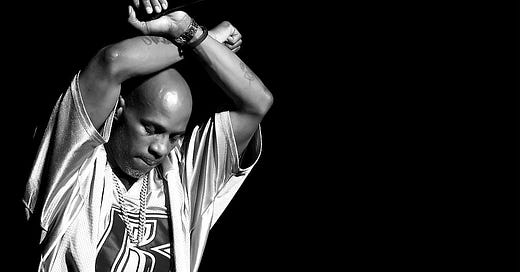From The Vault: Earl Simmons, 1970-2021
It’s been a little over a year since we lost DMX, but his voice hasn't stopped resonating.
Your weekly dose of music, media & money. Click here for a full subscription.
I wrote the below reminiscence the day DMX passed away in April 2021, a couple months before I launched this newsletter via Substack. Today I’d like to finally share it with the full Zogblog audience.
My first and only interview with Earl Simmons lasted no more than five minutes…
Keep reading with a 7-day free trial
Subscribe to ZOGBLOG by Zack O'Malley Greenburg to keep reading this post and get 7 days of free access to the full post archives.





